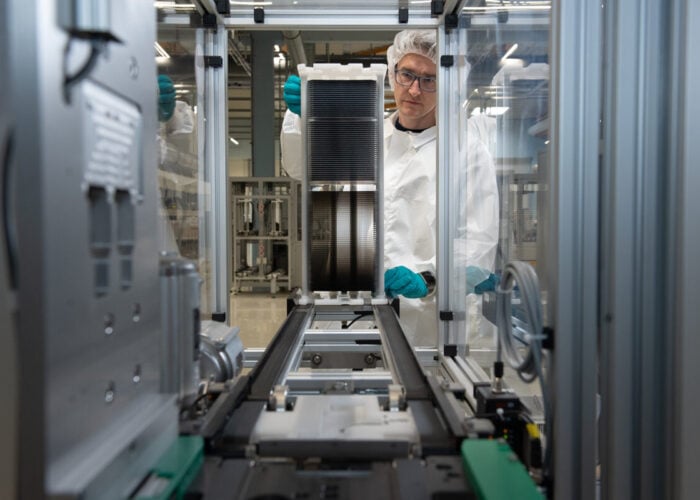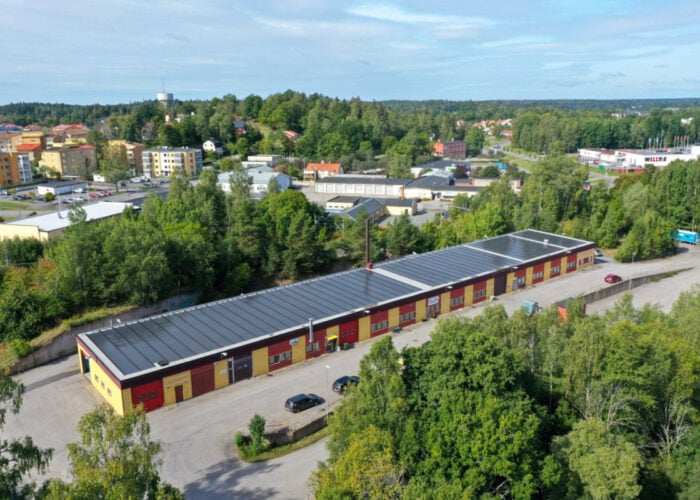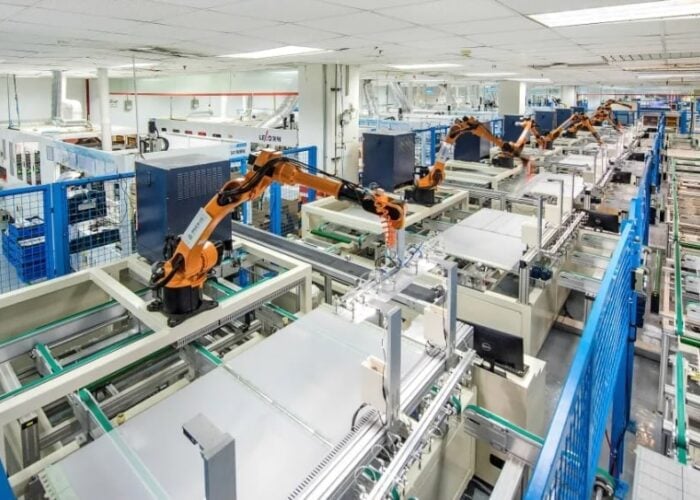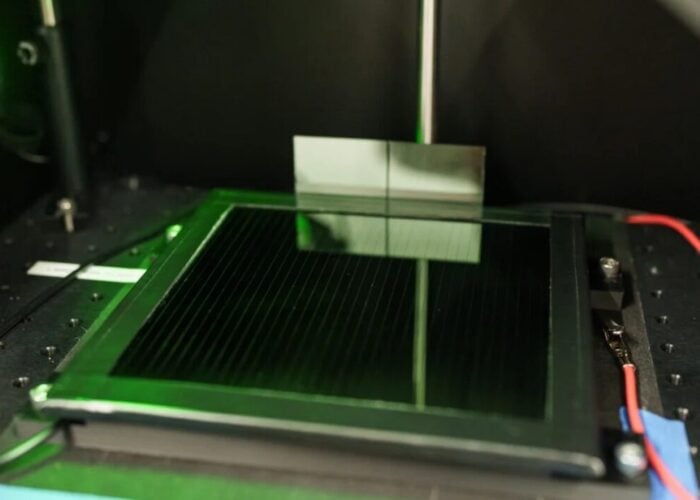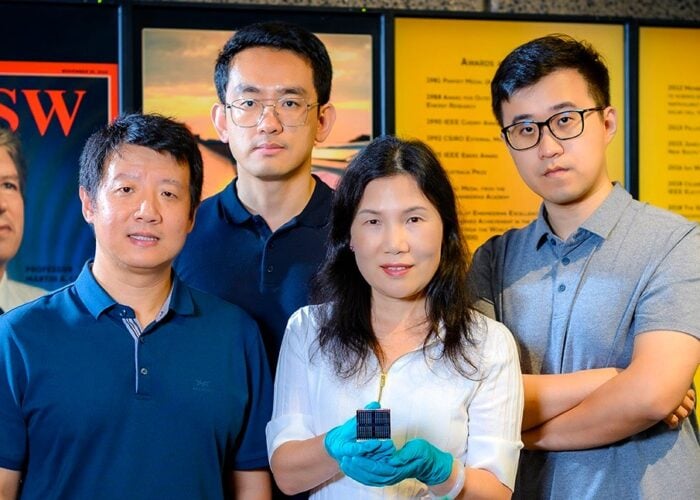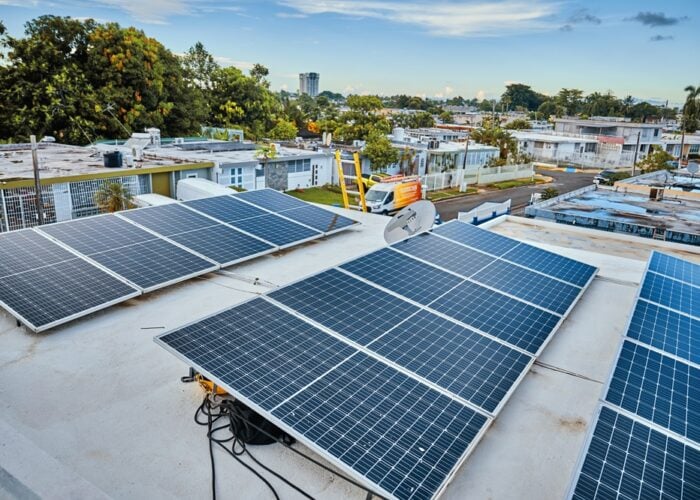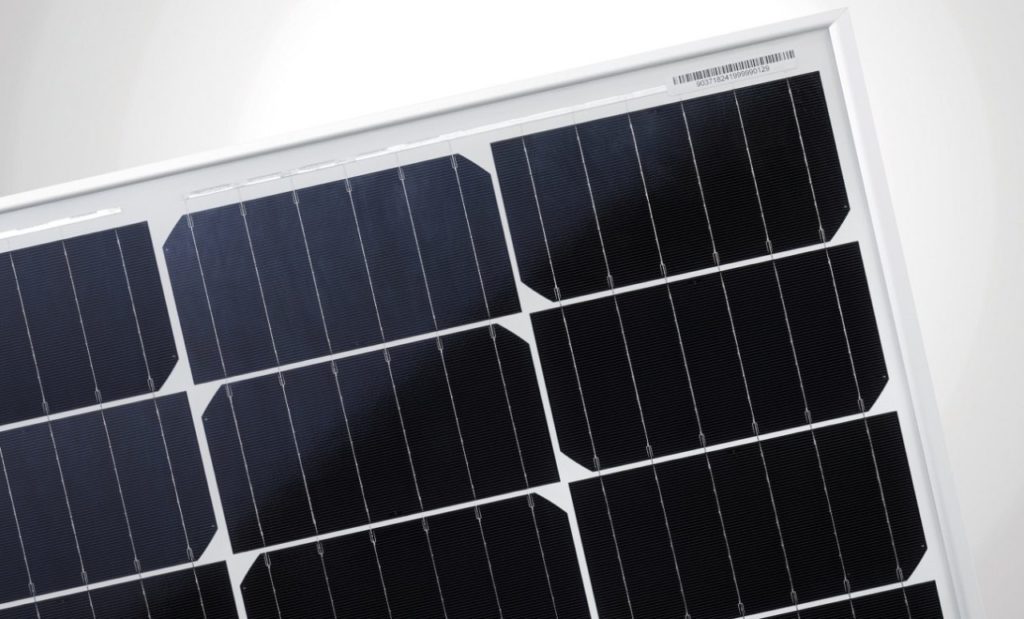
Even before the twin global shocks of COVID and war in Europe, clean energy growth was on a steep upward trajectory in Europe. Since COVID and war, however, efforts to deploy renewable energy have gathered steam across the continent. Led by ambitious target setting at national and EU level, and driven by grassroots consumer demand for greater energy independence and, simply, cleaner sources of power, renewable energies like solar PV and wind now account for the bulk of new capacity additions in most European countries.
Global supply chains previously immune to geopolitical tensions – or so it seemed – have suddenly become stretched, tangled and, in some cases, broken. With inflation soaring and the effects of climate change tangible almost everywhere, it bears mentioning that renewable energy costs continue to fall as installation rates rise.
Unlock unlimited access for 12 whole months of distinctive global analysis
Photovoltaics International is now included.
- Regular insight and analysis of the industry’s biggest developments
- In-depth interviews with the industry’s leading figures
- Unlimited digital access to the PV Tech Power journal catalogue
- Unlimited digital access to the Photovoltaics International journal catalogue
- Access to more than 1,000 technical papers
- Discounts on Solar Media’s portfolio of events, in-person and virtual
Or continue reading this article for free
In Europe, the REPowerEU programme has set a bold target of 400GW of solar PV by 2025, rising to 740GW by 2030. What does a Europe with 740GW of solar power look like? Well, it’s suddenly much less dependent on fossil fuels, or exposed to the changing winds of geopolitics. It means most leading European economies can generate more than 60% of their electricity with renewables (wind + solar), according to Wood Mackenzie projections. And it means that energy price shocks of the type most consumers are currently experiencing are no more; the cost of electricity becomes not only more stable, but more affordable, too.
Qcells at the helm of change
If governments want greater energy autonomy and a cleaner carbon footprint, while households and businesses want lower bills and a clearer eco-conscience, what are the opportunities for clean energy companies? Across the continent, such opportunities to support this transition abound for companies attuned to these winds of change.
With more than two decades of experience shaping the global solar industry, Qcells is one of the most respected and enduring names in the renewables space. Last year, the company rebranded with a new company ethos and mission: to deliver completely clean energy solutions.
Solar PV is, and remains, a core part of Qcells’ DNA. Today, however, it is supported by complementing activities in a number of fields. In Germany, the company’s birthplace, Qcells offers 100% renewable electricity retail contracts to households and small businesses, enabling all types of end consumer to lower their carbon footprint and take greater control of their energy consumption.
At the Qcells European HQ in Germany, the company recently announced that it will host a new pilot line for the research and development of tandem perovskite cell technology. As part of a consortium of 17 European institutions, Qcells will help to spearhead European research excellence in this space, with the ultimate goal to mass produce these new types of solar cells in Europe. This project, called PEPPERONI, promises to redefine not just Europe’s but the entire global industry’s production landscape.
Beyond Europe, Hanwha Solutions, Qcells’ owner, has pledged a US$320 million investment plan for solar manufacturing expansion in the US and Korea. The aim of the investment? To provide secure, end-to-end clean energy amid a climate of strained energy security and rising demand for net-zero emissions.
Further, Hanwha Solutions’ 21% stake in polysilicon producer REC Silicon makes it the largest shareholder in the company – a move intended to shore up Qcells’ ability to secure polysilicon produced transparently and with a lower carbon footprint than the industry standard.
These strategic efforts are already trickling down into tangible deliverables for the customer. In April, Sweden’s Coop Sverige AB commissioned a 6.1MW array at its new automated goods terminal near Stockholm to be built using Qcells’ CfP (carbon footprint-certified) solar modules. The selected NorSun solar modules, the Q.PEAK DUO L-G6 425Wp, have carbon emissions of 386kgCO₂/kW according to the Certisolis CfP certificate (calculation in line with the officially recognised CRE4 methodology), and are among the cleanest solar modules available on the market.
In November, Qcells also announced that its low-carbon modules had been selected by the UK’s Ministry of Defence (MOD) for installation across a range of solar projects at MOD premises, totalling 15MW. The MOD’s criteria in identifying suitable module providers included a stringent audit process of the raw materials used during manufacturing to ensure the lowest carbon footprint possible.
From policy and polysilicon to products
Qcells’ ambitions in many markets are supported by a broad suite of clean energy products. The new Q.TRON solar module is made using n-type wafers, which help boost the module’s efficiency. All of Qcells’ new solar modules undergo the most stringent quality control in the industry, too: Quality Controlled PV (QCPV) is a certification programme pioneered by Germany’s TÜV Rheinland to help raise and maintain new standards in solar module performance. Qcells was the first company to pass this tougher test, and continues to help shape future testing procedures to ensure standards never drop.
Supporting solar power’s rapid expansion is energy storage. Homes and businesses with solar panels installed can augment their energy ownership further with the installation of storage systems from Qcells. The latest in a long line of bespoke battery offerings is the Q.HOME CORE – a flexible battery that is scalable up to 20.5kWh, making it ideal for any type of household.
Storing solar electricity generated in the day for consumption in the evening is a wonderfully simple and effective way to enjoy completely clean energy solutions, from Qcells. Made-in-America solar modules are a great way for the US PV market to reduce its reliance on unreliable third parties, thanks to Qcells. Certified low-carbon solar modules chosen for their clean and transparent production footprint are a growing percentage of Qcells’ portfolio. And as European collaborative expertise devises EU-born solutions for the next chapter of solar’s story, Qcells once again finds itself in the driving seat.

